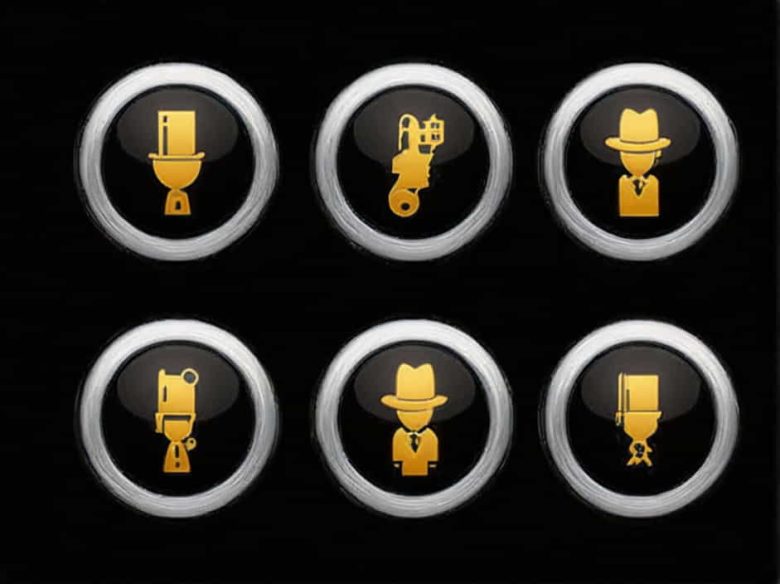The word Mafia is often associated with organized crime secrecy and power. Originating from Italy the term has evolved to describe criminal organizations worldwide. The Mafia is known for its strict hierarchy loyalty among members and involvement in illegal activities.
This topic will explore the definition origins history influence and modern presence of the Mafia providing a comprehensive understanding of this secretive underworld.
Definition of Mafia
The Mafia refers to organized crime groups that operate under a structured system of leadership and loyalty. These groups engage in illegal activities such as extortion gambling drug trafficking and smuggling.
The term originally referred to Sicilian criminal organizations but today it applies to various criminal networks across the world.
Common Characteristics of the Mafia
- Hierarchy – Strict chain of command often with a boss at the top.
- Secrecy (Omertà) – A code of silence among members.
- Loyalty – Strong family and brotherhood ties.
- Illegal Businesses – Activities like smuggling money laundering and protection rackets.
Origins and History of the Mafia
The Mafia’s history can be traced back to 19th-century Sicily where it was originally a protection network for landowners. Over time these groups evolved into powerful criminal organizations.
1. The Sicilian Mafia
- The Sicilian Mafia emerged as a response to weak law enforcement.
- It started as a group of vigilantes but later turned into a criminal empire.
- The word “Mafia” is believed to have originated from Sicilian dialect meaning “boldness” or “bravery.”
2. Expansion to the United States
- In the early 20th century Italian immigrants brought Mafia traditions to the United States.
- The Mafia gained control over illegal alcohol sales during Prohibition (1920-1933).
- Famous Mafia families such as the Gambino Genovese and Lucchese families controlled crime in cities like New York and Chicago.
3. Global Influence
- Today Mafia-style organizations exist worldwide including:
- Italy – The Sicilian Mafia (Cosa Nostra) Camorra and ‘Ndrangheta.
- United States – The American Mafia.
- Russia – The Russian Mafia.
- Japan – The Yakuza.
- China – The Triads.
- Mexico – Drug cartels with Mafia-like structures.
Mafia Hierarchy and Structure
The Mafia operates under a strict chain of command.
Mafia Ranks and Roles
- Boss (Don) – The leader of the family making major decisions.
- Underboss – The second-in-command often next in line for leadership.
- Consigliere – An advisor to the boss handling disputes and decisions.
- Capo (Caporegime) – A captain in charge of a group of soldiers.
- Soldiers (Made Men) – The official members of the Mafia carrying out orders.
- Associates – Individuals who work with the Mafia but are not full members.
This system ensures loyalty secrecy and efficient control over operations.
Illegal Activities of the Mafia
The Mafia engages in various criminal enterprises to generate revenue and maintain power.
1. Extortion and Protection Rackets
- Businesses are forced to pay the Mafia for “protection.”
- Those who refuse often face violence or destruction of property.
2. Drug Trafficking
- The Mafia has been involved in heroin cocaine and methamphetamine smuggling.
- They often work with cartels and international drug networks.
3. Gambling and Casinos
- Illegal betting and gambling operations provide significant profits.
- Some Mafia groups control legal casinos to launder money.
4. Money Laundering
- The Mafia invests in legitimate businesses to disguise illegal income.
- This process allows them to move large sums of money without detection.
5. Smuggling and Human Trafficking
- Many Mafia organizations profit from smuggling goods and people.
- This includes counterfeit products arms trafficking and forced labor networks.
The Mafia in Popular Culture
The Mafia has been a major inspiration for books movies and TV shows shaping public perception.
Famous Mafia Movies and TV Shows
- The Godfather Trilogy (1972-1990) – A classic film series about a powerful Mafia family.
- Goodfellas (1990) – Based on real-life Mafia activities in New York.
- The Sopranos (1999-2007) – A TV show about modern-day Mafia struggles.
- Scarface (1983) – Follows a rise in the criminal underworld.
These portrayals often show both the glamour and brutality of Mafia life.
Law Enforcement vs. The Mafia
Governments worldwide have taken strong measures to combat Mafia organizations.
1. RICO Act (United States)
- The Racketeer Influenced and Corrupt Organizations (RICO) Act was passed in 1970.
- It allows prosecutors to target entire crime organizations not just individuals.
2. Anti-Mafia Laws in Italy
- Italy has strict Mafia laws including:
- Confiscation of Mafia assets.
- Harsh sentences for Mafia leaders.
- Protection for witnesses who testify against the Mafia.
3. Global Efforts
- Interpol and the FBI work together to dismantle international crime syndicates.
- Many Mafia bosses have been arrested and sentenced due to increased surveillance and undercover operations.
Is the Mafia Still Active Today?
Yes while the traditional Italian-American Mafia has declined many Mafia-like organizations remain active worldwide.
1. The Sicilian Mafia (‘Cosa Nostra’)
- Still operates in Italy controlling parts of drug trafficking and extortion networks.
2. The Russian Mafia
- Involved in cybercrime fraud and arms smuggling worldwide.
3. The Mexican Cartels
- Function similarly to the Mafia controlling drug trade and organized crime.
4. The Yakuza (Japan)
- Known for gambling smuggling and protection rackets.
Despite law enforcement efforts the Mafia adapts to modern crime including cybercrime and online money laundering.
The Mafia has a long history originating in Sicily before spreading worldwide. It operates with a strict hierarchy secrecy and loyalty engaging in illegal activities such as extortion gambling and drug trafficking.
While law enforcement has weakened some Mafia groups organized crime remains a global issue evolving with modern technology and new criminal enterprises.
Understanding the Mafia’s history influence and current presence helps shed light on the complex world of organized crime.



